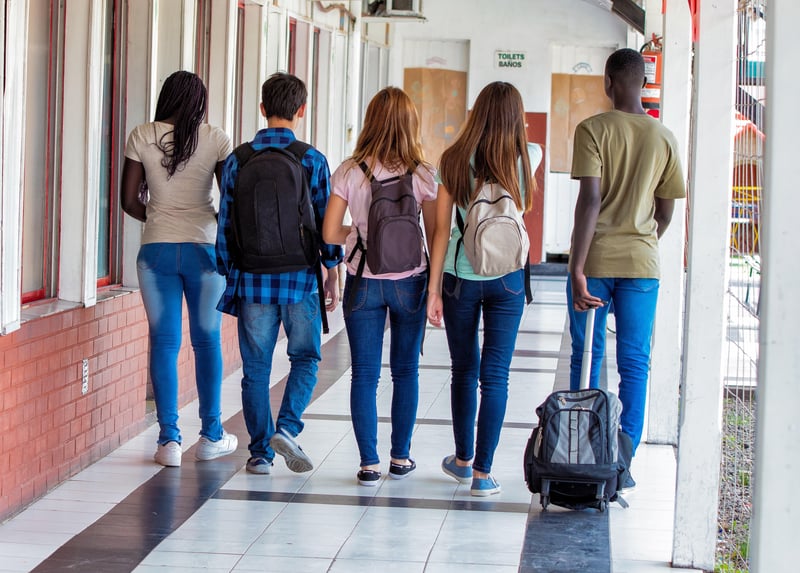Get Healthy!

- Posted April 19, 2023
In Some U.S. Schools, 1 in 4 Kids Said They've Misused an ADHD Drug
U.S. schools that have a lot of students with prescriptions for ADHD medication also tend to have a lot of students who misuse the drugs, a new study suggests.
Researchers found that among nearly 3,300 U.S. middle schools and high schools, some had a serious problem with students misusing prescription stimulant medications. At certain schools, upwards of one-quarter of students said they'd misused the drugs in the past year.
And the problem loomed larger at schools where a high percentage of students had legitimate stimulant prescriptions -- a sign some of those kids are sharing the drugs with their peers.
At issue are the medications most commonly used to treat ADHD, or attention deficit hyperactivity disorder, including well-known brand names like Ritalin (methylphenidate), Adderall (amphetamine/dextroamphetamine) and Concerta (methylphenidate).
When kids actually have ADHD, the drugs can help them focus, have more self-control and do better in school. But the medications are also commonly abused, often by kids or college students who get pills from their friends with prescriptions.
"Oftentimes, there are several motivations for misuse," said Sean Esteban McCabe, director of the University of Michigan's Center for the Study of Drugs, Alcohol, Smoking and Health.
Some kids, he said, buy into the mistaken belief that stimulants will make them sharper and boost their school performance. Other times, they use the drugs to "get high," to lose weight or simply to experiment.
"But these drugs are not to be taken lightly," said McCabe, who led the new study.
Stimulant abuse presents a risk of overdose and side effects like irregular heartbeat, dangerously high body temperature and seizures, according to the U.S. National Institutes of Health. Over time, it can also lead to a substance use disorder.
In an earlier study, McCabe and his colleagues found that U.S. colleges vary widely in students' misuse of stimulants: It's barely present at some, and a major problem at others.
Little has been known, though, about what's going on in high schools and middle schools.
So for the new study, the researchers analyzed data from an annual government survey of students at schools across the country. They had information from more than 230,000 students surveyed between 2005 and 2020.
Overall, the study found, the picture looked a lot like the one seen on college campuses.
"Stimulant misuse was as low as zero at some schools, and as high as over 25% at others," McCabe said.
And that difference depended, in part, on whether schools had a high percentage of students who were on a stimulant to treat ADHD.
Kids who attended schools with a high rate -- 12% or more of students on ADHD medication -- were 36% more likely to say they'd misused stimulants, versus kids at schools where no students used the medications for ADHD.
That was not the whole story, McCabe said. Stimulant abuse still happened at some schools with few kids taking ADHD medication.
He also stressed that no one is saying the medications should be withheld from children who need them.
But, McCabe said, those kids need to be prepared if they are ever pressured by classmates to share their meds.
"Many of them just don't know what to do," he said. "So they need to have something ready to say."
Parents, McCabe added, can help them figure that out.
Linda Richter, vice president of prevention research and analysis for the nonprofit Partnership to End Addiction, made similar points.
"It's very important for parents to have conversations with their children about prescription medications from an early age, and to be a credible source of information about the risks of using any medication not specifically prescribed for you," said Richter, who was not involved in the study.
Kids "should understand that sharing their prescribed medication with a friend could be putting that friend at risk," she said.
Beyond those talks, McCabe also suggested parents store their kids' medication in a lockbox, and consider counting their pills to pick up on any medication sharing or misuse.
As for red flags that your child might be abusing stimulants, Richter said that any sustained changes in a child's behavior, relationships, sleep or eating habits could be signs.
"But," she said, "the best way to know if your child is misusing a drug is to have an open and honest relationship, spend time together regularly, and monitor their whereabouts and activities."
The findings were published April 18 in the journal JAMA Network Open.
More information
The American Academy of Pediatrics has advice for parents on teen substance abuse.
SOURCES: Sean Esteban McCabe, PhD, professor, nursing, and director, Center for the Study of Drugs, Alcohol, Smoking and Health, University of Michigan, Ann Arbor; Linda Richter, PhD, vice president, prevention research and analysis, Partnership to End Addiction, New York City; JAMA Network Open, April 18, 2023, online






